Muay Thai champion and paramedic Anastasiya Kalashnikava spoke about the arrest and going on trial for flowers
27 January 2021 | Nadzeya Filipchyk, BY.Tribuna.com
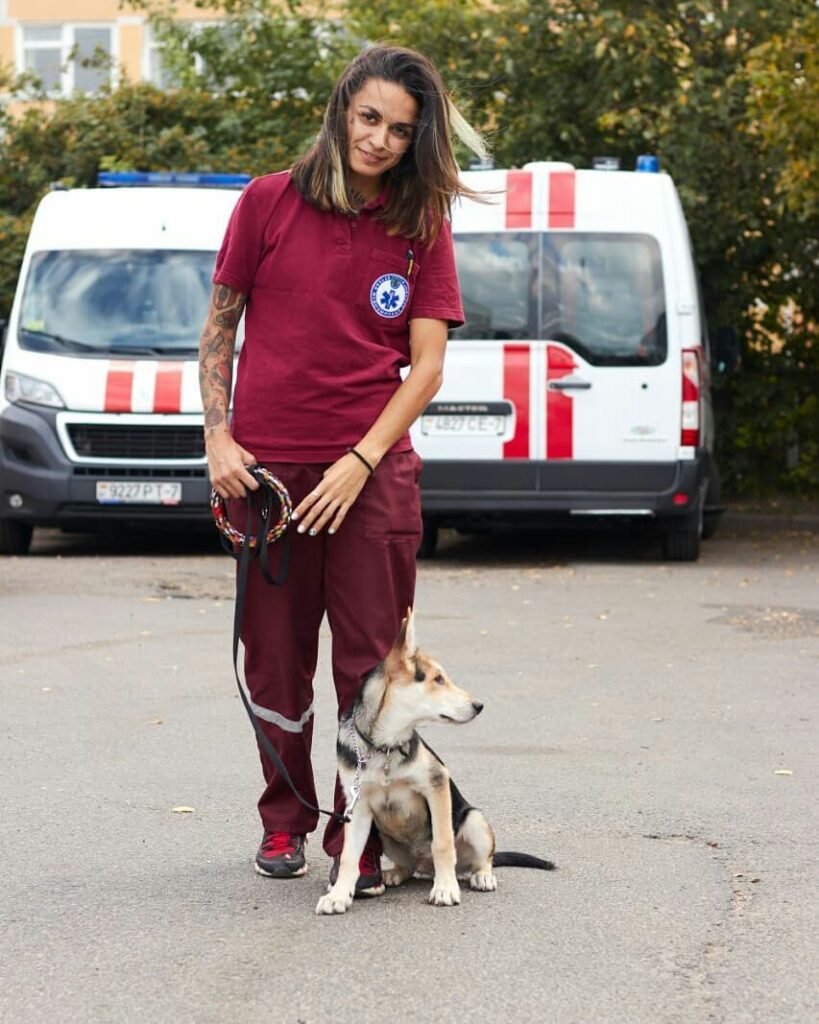
For several years now, Anastasiya Kalashnikava, a native of Minsk, has been combining work as a paramedic in an ambulance team and [boxing] training with participation in fights. Kalashnikava has victories in national kickboxing and Muay Thai championships, as well as prizes in international tournaments under her belt. She has a bright tattoo on her leg, a portrait of Alexander Lukashenko, but Kalashnikava cannot be suspected of sympathizing with the current government. A few months ago she signed a letter where the athletes stood up for fair elections and against violence. She knows exactly what type of violence the letter mentions, because straight after the elections, as a doctor, Kalashnikava visited Akrestsina [detention centre].
Recently, the media wrote about Kalashnikava again. But the reason for it was not the most joyful. On 17 January, she was arrested, and the next day she was given a fine of 30 base units (around 275 euros). The reason for the fine were two carnations which Kalashnikava placed on the snow near the memorial of Aliaksandr Taraikouski. A couple of days after her release, we met with Kalashnikava to discuss the arrest for two flowers, stories from Akrestsina, and the athletes who only speak out about violence in their own kitchens.
You just finished your first shift after the arrest. How did your colleagues greet you?
Really well, for some reason they collected money for me, I was shocked. They asked how I was doing, but they talked about it all as if I was being killed in there [prison]. Everyone was worried, they thought everything would turn out to be much worse than it really was.
I know that you have brought flowers to the memorial of Aliaksandr Taraikouski, who was killed on 10 August 2020, many times before.
Yes.
Why is this important to you?
In some ways, it is an expression of grief, but this is not done for the dead. We have lost a man and this is wrong, what is even more wrong is that he was killed. And what is even worse, that no one was punished for the murder, no one even bothered to somehow investigate the case. The family just got “spat in the face”. As far as I recall, it was even said about Aliaksandr that he was drunk or that he had a grenade in his hand. I didn’t arrange rallies at the memorial, I just brought flowers when I had the opportunity.
On the day of the arrest, I did not know at all that it was a Sunday. Because of my work, I don’t know much about the days of the week, I just know that after a 24-hour shift I have three or four days off. In the police office I had to check the date, I tapped on my watch that the policemen had forgotten to take off me, and the day of the week was displayed there. I saw that it was a Sunday, and the puzzle was complete.
On 17 January, you also brought flowers to the memorial. What happened after that?
I wasn’t going to bring flowers there, I was just returning home by underground, I live nearby. I got out of the underground and saw that there were a few flowers on the memorial and some scraps of ribbons. As it turned out, every time that the security forces arrested someone at the memorial, they also carried away or trampled down the flowers.
I thought I should buy a couple of carnations. I went back down [to the shops in the underpass] for flowers, at the same time I was still talking on the phone with my mother, I had an earpiece. I came back up, laid the flowers, and raised my head. I saw a girl looking at me, then she turned her gaze to the parking lot. I looked there and saw a (mini)bus leaving the parking lot.
How did you react?
I didn’t run away. I think I was let down by the feeling that I didn’t do anything wrong. After all, it’s stupid to arrest someone for putting a flower on the snow! Nevertheless, I warned my mother that I saw a (mini)bus [typically used by security forces] and went in the direction of the bus stop. A few minutes later I got arrested.
That bus drove up, security officers jumped out. One of them grabbed my shoulder and said: “Let’s go and talk.” I asked what we were going to talk about, but he repeated the same thing more insistently. I offered to talk on the street. I was still on the phone with my mother, and at that moment she began to cry.
I asked the security officer several times “what for”? I was not fooled and understood that the conversation would not be the end of it and that they would take me away and accuse me of something, I was wondering what for. I realized that he would not tell me why. He started to push me towards the bus and was saying that otherwise the outcome would be worse. Then I asked him to let me turn off the phone.
Did they ask you to unlock your phone in the car?
No, but they took out a camera and for some reason started filming me.
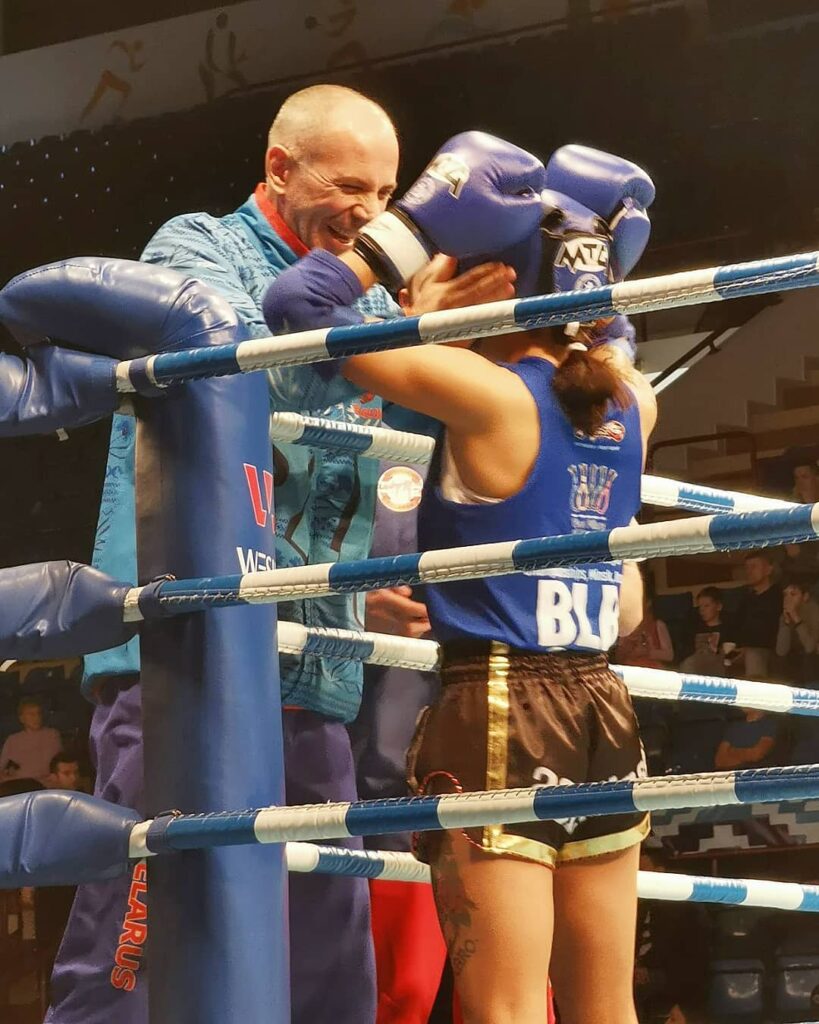
Did they ask you any questions on camera?
I was asked what I was doing at the Pushkinskaya underground station and what I had in my hands. I replied that I was going home, and there were flowers in my hands, and I left them at the memorial. Apparently, he tried to lead me to some kind of confessions, for example, that I was running somewhere with two carnations for the sake of overthrowing the government. So the security officer asked really strange questions, his voice suggesting that I had a machine gun in my hands instead of flowers.
The entire bus was filled with security officers, but only two of them behaved aggressively: the one who detained me and the one sitting in the front seat. Everyone was wearing balaclavas, and these two were also wearing masks. They were outraged by the fact that I was carrying flowers to a person whom I did not know personally, and that I did not go with flowers to the cemetery. I answered that they don’t actually know if I was there [at the cemetery] or not.
That made the security officer angry and he changed the subject. He began to talk about the fact that we are making heroes from God knows who, from some bastards. He began to tell me about some maniac from Brest, who raped and dismembered a girl, then tried to burn her remains. The maniac was caught and died, either in prison or after his release. So, that security officer said about the maniac: “You made a hero out of him.” I asked: “Who did?” He answered: “Do not pretend to be a fool!”
But I really didn’t understand what it all was about, thinking that something was wrong with me. As a result, I asked my cellmates what kind of a maniac from Brest had become a hero. In general, it was very unpleasant to interact with the security forces, not to feel safe.
I was arrested at about 15:20, quite early. According to the protocol, everything happened an hour earlier, but at that time I was still in Malinauka, in a cafe with a friend.
Did you feel safer in the police office than in the bus?
There was only one employee who behaved aggressively, the one who asked me to unlock the phone. I refused to do this, then he began to threaten that he would unlock the phone himself. I replied: “You can do whatever you want with my phone as long as it’s legal.” The rest of the employees behaved neutrally, constantly rolling their eyes and asking: “Why don’t you just stay at home?”
Did you get a feeling that they were tired?
Yes, they don’t want to do it, most of them at least. They want everything to end as soon as possible, but they do not understand that with their work they only contribute to the continuation of everything. And also all the employees whom we met in the police office somehow psychologically defend themselves. When you ask them different questions, one answers that he was not the one to arrest us, the other, that he was not the one who wrote the protocol, the third one, that he was not the one who confiscated my belongings. As if they are saying: “I am also against it, all this is absurd, and it is not my fault that you will get detained.”
Who else did you meet in the police office?
There were a few elderly women with me in the office, two of them were later taken by the ambulance. They could not send us to the detention centre on Akrestsina Street until late at night, as they had to wait for the convoy, so we were taken down into a cell. Then they brought Palina Loika, an ambulance paramedic from the second substation. A blogger who was detained for a video in police uniform (Emin Musayeu – ed.) was also transported with us. He was the only one convicted not under article 23.34, but under article 17.1 (petty hooliganism – ed.). None of the arrested recognized this guy, but absolutely all the police officers greeted him. Therefore, we laughed at him and said that when the first fans of the Belarusian blogger are policemen, it is probably very bad.
What happened in the police office so that the arrested were taken away from there in an ambulance?
Both women had a hypertensive crisis, I think they got stressed. One of the women was very worried that she was deceived. When she was arrested, she was promised that her personal data would get taken down in the police office, and then she would be released. And I explained to her that they would not let us go. This woman lives in a house opposite Pushkinskaya station and just went out to see what was happening at the memorial. The employee who was in the office with us constantly escalated the situation. He told the woman that she would be imprisoned, she would receive multiple days of detention. She tried to make fun of it, but she was very worried and constantly asked the policeman if we would be beaten. I felt sorry for her.
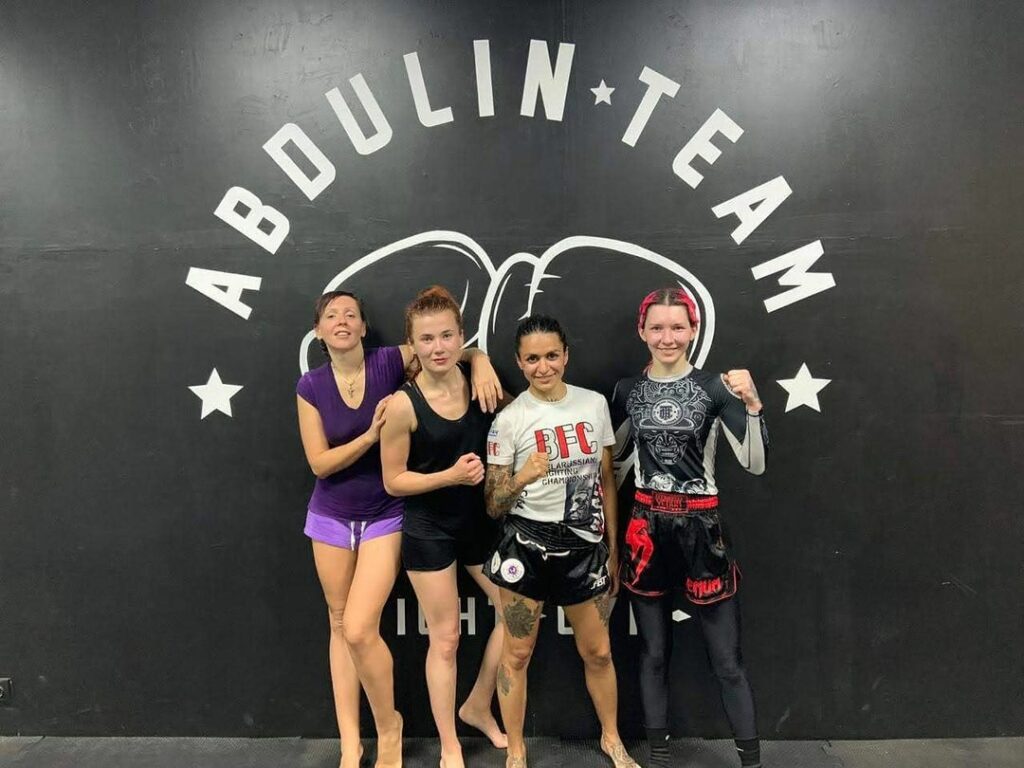
I was told that your first visit to the detention centre was back in August, but that time for work. Can you tell that story yourself?
We arrived at the detention centre at night. The [ambulance] substation that serves the Akrestsina area could not cope, and we were asked to help. As soon as our car drove through the gate, we saw people kneeling by the wall. Behind them, there were several more rows of people who were also on their knees and at the same time were lying face down. They were beaten non-stop.
We were told to exit through another gate, and several people with injuries were brought to us. We tried to examine and help them. At the same time, we understood that people behind the fence were still being beaten. We heard blows, moans, how they were forced to repeat something. While we were there young men were followed out of the facility, as if they were sentenced to death. They ran in single file, and they were rushed on. In the end, they ran into the area where people were beaten.
I was studying faces, as I was afraid that I would recognise someone I know. After all, there was no Internet, we did not know which of our relatives could have been arrested. I didn’t understand what was happening and why everything was like this. We took four patients with us and I called another ambulance for two teenagers around 18 years old who seemed very frightened. By the way, I had an argument with the detention officer about that. Those teenagers cried and begged to be let go, they said that they were just standing in the store, while the detention officer dressed in a tracksuit was escalating the situation and shouted at the teenagers that he would destroy them and their families. One of the teenagers, from what I could see, had a broken jaw, the other had a broken nose. I cannot comprehend why they had to be beaten like that. As a result, I stayed there to wait for the next ambulance team which took the teenagers away. I was afraid that otherwise, the young men would end up in multiple-day detention even with those injuries.
How was your first night in the detention centre this time?
It was very cold.
Couldn’t you receive warm clothes?
When I was in the police office, my brother was not told where I was. Every time he asked, they would either tell him I was not detained, or that I had been taken to the detention centre. They provided phone numbers, where no one answered.
Also, the head of the detention centre came into our cell. I recognised him from photos in the media. First thing he asked: “Who is Kalashnikava?” I thought, damn, why me? As a result, he stayed in the cell and insulted us. He told me that since I was arrested for flowers, then I am detained for a cause. He also said that if I was carrying a white-red-white flag, he would have forgiven me. But since I “carry flowers for bastards,” I will do time in detention. I did not know how to interpret all this and what to say. There was an unpleasant feeling that you are alone there, and there are many of them, and you cannot do anything.
We didn’t have mattresses, and slept on planks. They didn’t provide any bed linen, called it “disinfection” and smiled. In the morning someone arrived, as I understood, from the press center of the main department for internal affairs of the Minsk City Executive Committee. They tried to make some videos for their office, and we were taken up to the assembly hall one by one. After the video shoot, I was briefly placed into the first male cell that came across. As I understand, the guys from that cell were out for a walk. Not only did they have heating on, they also had mattresses on the bunks. We all understood why the “disinfection” was only on our floor, since, most likely, only those detained under article 23.34 were placed there.
Now there is a lot of talk about the Covid-19 epidemic in the detention centre. What can you say about this as a medic?
I was more afraid of catching bed bugs there. The staff at the detention centre are very scared of Covid-19, so all prisoners wear masks. A different matter is that masks are not provided there, so you wear the same mask for days. In addition, we did not always keep our distance. Because of the cold, we slept with arms around each other. And after we were brought to the detention centre, for some time, four of us stood in a prisoner compartment. The cells themselves are dirty. I smelled like a homeless person after sleeping on the planks. Maybe we were lucky that we were not given mattresses? In the men’s cell they smelled even stronger.
I understand what conditions you stayed in. What about the food?
If they always feed the detained with what we were given, I’m not surprised that people get sick. In the morning they brought us tea and some thin porridge. It was so tasteless that I didn’t even understand what kind of grain it was made of, but it was definitely a dietary dish. They also gave us a thick slice of bread, and that’s what filled me a bit. I realized that if we were to be sent to Zhodzina for example, and they haven’t fed us, the next time we will eat would only be tomorrow morning.
What was stated in your protocol?
That I was on Pushkin Avenue, 21A, with flowers, taking part in a rally. No information about what kind of rally took place there or what I did there. At the trial, I found out that, according to the information of the witness, I showed some signs of solidarity but nothing was said about this in the protocol. They also claimed that I attracted the attention of the drivers passing by, but how could I do this?
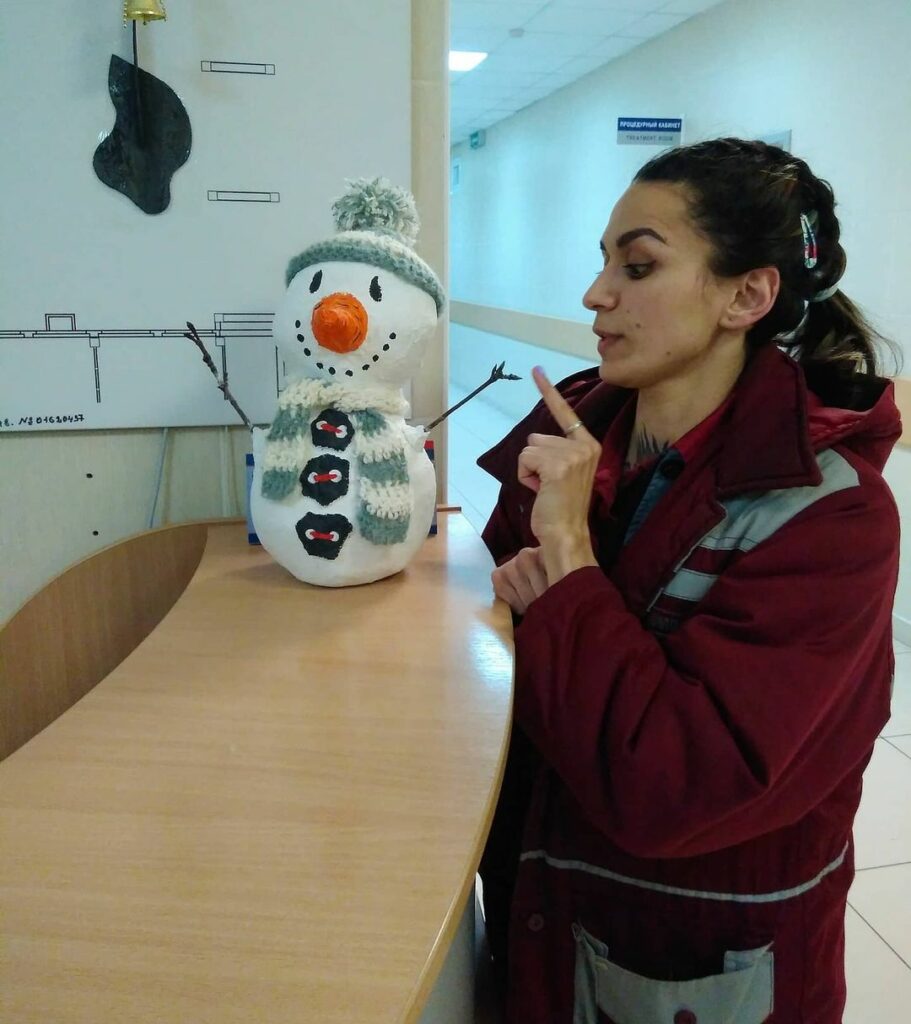
They constantly tried to convince me that by my actions I broke the law, and the riot police even claimed that I provoked them. I asked whom I provoked, and they answered me: “Do not pretend to be a fool.” Maybe I provoked the communal services to clean [the street]?
So, there was no dialogue at the trial.
The judge didn’t talk to me at all, she watched a video in TikTok. The trial took place via Skype, so I didn’t see why she was constantly looking at her phone. But my brother was at the trial, and he noticed what was the reason. He said that during the break, the judge also discussed the video from TikTok with her assistant.
Did you expect to get multiple days detention at the trial?
Yes, I was convinced it wasn’t going to turn out well for me. An employee of the detention centre was constantly next to me at the trial. He did not leave even when I communicated via Skype with my lawyer, although such conversations should be confidential. And when they gave me a fine of 30 base units, other employees of the detention centre asked him how it all ended, and were surprised when they heard about the fine. I think it was the presence of a lawyer that helped me, and also the fact that the protocol was drawn up with violations. I was lucky, although I received a fine with no grounds for it.
Will someone help you compensate for it?
Yes, I was contacted by the ByMedSol fund, they said that this would not be a problem. At work, they also raised money for me, but I want to transfer part of the funds to Palina Loika, she was sentenced to 25 days detention.
***
The media wrote about you several years ago – the story of a girl with an unusual tattoo, a portrait of Lukashenko on her leg. Is the tattoo still in place?
Yeah. Back in 2013, I received a fine of 22 base units for it.
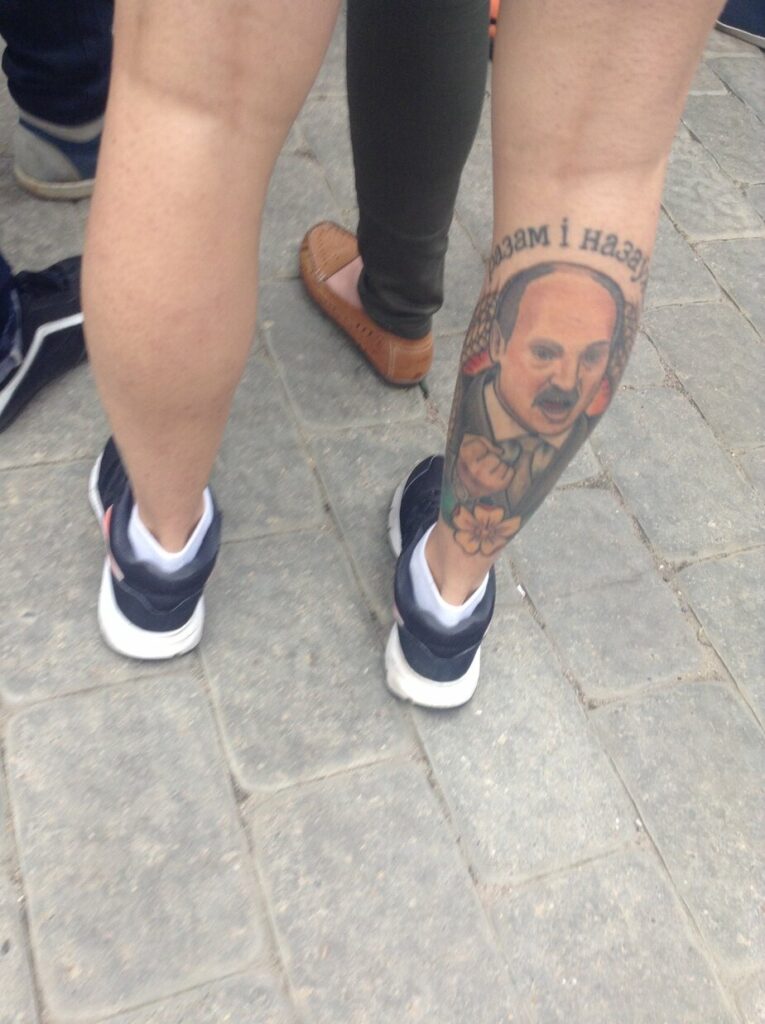
Under what circumstances?
I was arrested at the stadium before the Partizan football game. Allegedly, I was running around and swearing, and at that moment a platoon of riot police suddenly appeared. In reality, my friend and I were just waiting for the game to start. I had an argument with a security officer, and he hit me on the leg, just on Sasha. I was upset and asked him: “Don’t you love our president? How can you work here then?” At some point, that officer got angry, made a sign, and the riot police put me face down on the ground. As a result, I was arrested and, perhaps, I would have been detained for days, but the ambulance took me away.
Were you injured?
“Rather, the police office simply did not want to deal with me. When the riot policemen brought me in, police officers looked at me in surprise: 158 centimeters tall, white t-shirt and shorts. When they started to declare my belongings, I just emptied the contents of my bag on the table. I was on my way from my studies and had medical books and a phonendoscope in my bag. They asked: “Are you a doctor?” I answered: “Not yet.” As a result, I was accused of hooliganism and resistance. There were four victims, the platoon commander and his three colleagues who stood up for him. Allegedly, I tore everyone’s uniform, insulted, and beat everyone up. When the protocol was read out to me, which included all these accusations, everyone in the police office laughed, while I was in shock. I had a badly cut eyebrow, they called an ambulance for me and later released me. I left the country for a month and a half, and upon arrival, I found a court order and a fine in the mailbox. Friends helped me paying it.
What made you get such a tattoo? Was it just for fun?
Yeah. I was 19-20 years old, and who can be considered sensible at that age?
Do you ever think about removing the tattoo?
I have not thought about removing it completely, rather I wanted to adjust it. Actually, I also have the second leg, and there I got Kolya [Nikolai Lukashenko], so everything is fine.
I have no regrets that I got this tattoo. I got these tattoos for myself and did not really think about the fact that people would pay attention to them. I also have some very crooked tattoos, but I will not redo them. All this is a reflection of my life at some moments in time, it is an experience.
Last fall your statement from your [Instagram] stories was widely spread. You talked about why kickboxers don’t speak out about violence in the country.
I swore in that video. I hid that story from my mother on purpose, and when I saw that it was spread all over the Internet… I was looking at the phone for the entire day thinking that my mother would call me and tell me her opinion, but she didn’t.
How did your sports friends react to that video?
Some were offended, and then they signed a pro-government letter. It was fun to watch. They took everything personally. It happens that people just consider themselves the center of the world. In reality, I was very angry about their silence, which is why I expressed myself in the story. I was also surprised that people asked me about why kickboxers don’t speak out openly. So let’s ask them themselves!
In my personal opinion, and that concerns not only athletes: at some point [last year], closer to the beginning of September 2020, everyone had to make their choice. Those who wanted to speak out did it, the rest are just waiting to see who will win. It is clear to everyone that we are all sitting in the kitchens and discussing all this.
I am not saying that the silent ones are bad people, I am saying that they do not care. On one side of the scale there are human lives of those that have suffered, and on the other is the salary, and one can only care about one of those things. That is, you have to be ready to either not care about someone’s life, but keep your salary, or to speak out, but realize how that can end up.
Some people ask: “Maybe the athletes just don’t notice all this?” Are they fools and can’t read? In the gyms, everyone is talking about politics, sometimes in the locker rooms they even hang up announcements with a ban on discussing all this. And we all understand the opinion of the majority of athletes, the government is supported only by a few. But those who are against will never speak out, it is more important for them to keep what they have now. Someone will constantly whine that he is not satisfied with what he already has, but it is important for him to keep the position of a victim.
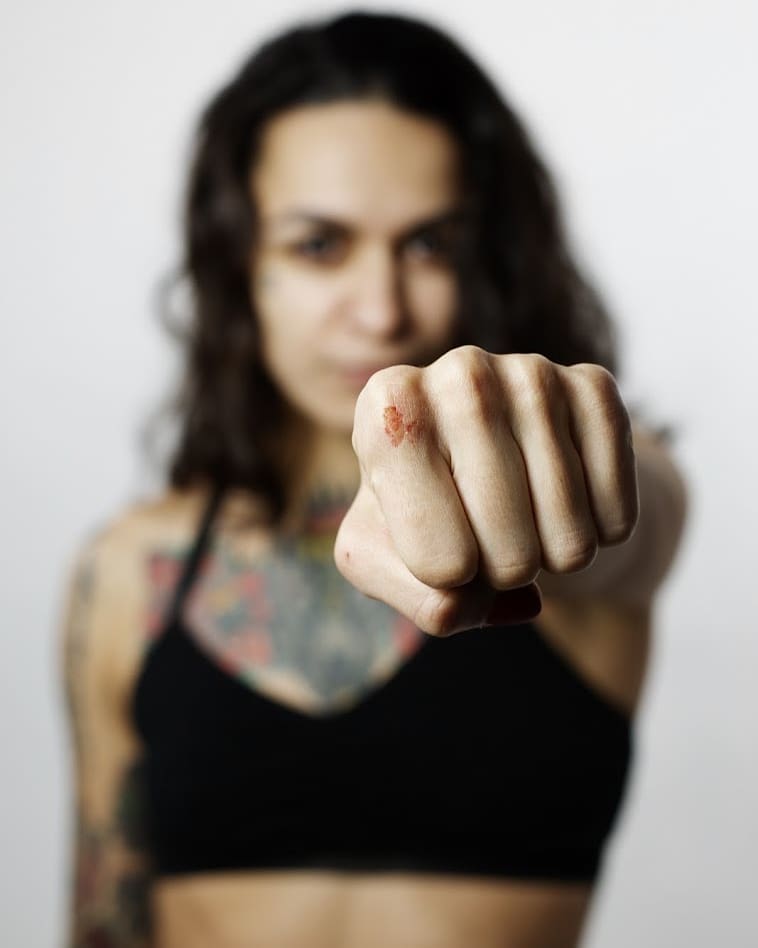
Did anyone you know sign the pro-government letter?
Me and Dima Valent have the same coach, however, Dima later withdrew his signature. As I understand it, he was in doubt whether to sign the letter. It is pretty clear: when they put the letter and your contract in front of you, for many it is a decisive factor. I have a good opinion about Dima, so I felt a little offended when I found out about his signature. From everyone else it was expected.
Why is that?
They love themselves more, and this is a good quality for an athlete. Maybe they win in some way because of this.
But what about the motivation to represent the people of your country?
I feel that a very small percentage of athletes enter the ring to get hit in the head and at the same time think that the people of their country are behind them. They go to fight for themselves, and big champions have big egos. If you think that your opponent is in any way better than you, you are unlikely to win. You also need to invest your strength in it.
You chose to sign the letter in support of fair elections.
I think there are more points in that letter related to the overall situation in the country than to the elections. The elections were rather the catalyst of everything, although they turned out a cock-up.
Did you vote?
Yes, my whole family voted. My mom went for the first time since the 90s. Previously, she was a typical Belarusian, who was convinced that her vote did not mean anything. But this time she asked me already in April whom is it better to vote for.